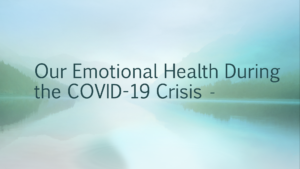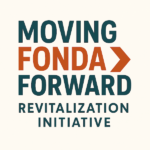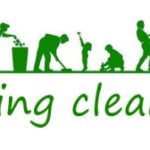
Navigating restrictions that stem from the COVID-19 Virus is challenging. Social separation, for many, is painful, particularly those who suffer from anxiety and depression.
Understand what the “New York Pause” means. Source: NY Health
- No social gatherings of any size fro any reason.
- Practice Social Distancing of at least 6 Feet when in public.
- Sick individuals should not leave their home unless to receive medical care and only after a telehealth visit to determine if leaving their home is in the best interest of their health;
- Finally, individuals should limit outdoor recreational activities to non-contact and avoid activities where they come in close contact with other people – BUT GET OUT INDIVIDUALLY TO ENJOY THE SUN AND AIR, If only in your backyard. Maintain NO CONTACT with Outside Surfaces and People. Wash your hands frequently, and DO NOT touch your face.
Coping with Stress and Depression. Source CDC
Things you can do to support yourself
Take breaks from watching, reading, or listening to news stories, including social media. Repeatedly hearing about the pandemic can be upsetting.
Take care of your body. Take deep breaths, stretch, or meditate. Try to eat healthy, well-balanced meals, exercise regularly, get plenty of sleep, and avoid alcohol and drugs.
Make time to unwind. Try to do some other activities you enjoy.
Connect with others. Talk with people you trust about your concerns and how you are feeling.
For Parents and Children Source: National Geographic
Model calmness, even if you have to fake it.
Modeling is so important now, said Ty Hatfield, co-author of ParentShift: Ten Universal Truths That Will Change the Way You Raise Your Kids and co-founder of the parenting program Parenting From the Heart. Kids learn from us how to manage stress and solve problems when things are difficult.
Parents, this means taking care of yourself. If you can find the time, exercise, take a hot bath. Listen to music. Read a book. Whatever works for you. And manage your consumption of news and social media.
“Watching the news is not self-care,” Hatfield said.
Establish a flexible routine
It doesn’t need to be color-coded in 15-minute intervals with flashcards and French lessons and mind-numbing crafts. But structure makes kids feel safe, especially during times of upheaval.
“Don’t be militant with the schedule,” Peris said. “We’ve all had kids crash our calls and pop up on Zoom. This is going to be real-life in all its glory. But a consistent routine is a thing parents can do to preserve everybody’s mental health in a big way.”
Be honest, but don’t tell them more than they need
For younger kids, be short and to the point. Let the child’s questions guide the conversation. But be honest, Duffy said: “Kids will become more anxious at any age if they sense you’re not forthcoming.”
Tell them what you do and don’t know. But balance that with the comfort that lots of people are working on this, and social distancing is effective at managing it. Reassure them that they’re safe and protected.
Most importantly, says Linda Hatfield, co-author of ParentShift and co-founder of Parenting From the Heart, acknowledge their feelings. For example: “It sounds like you’re worried you might get sick.” Or, “I imagine you’re sad that you don’t get to play with your friends today.”
“Children are a bundle of feelings,” she says. “When you communicate with them through feeling language, it helps them feel heard and seen and understood. It helps them feel like their world makes sense, like the other person gets them.”






